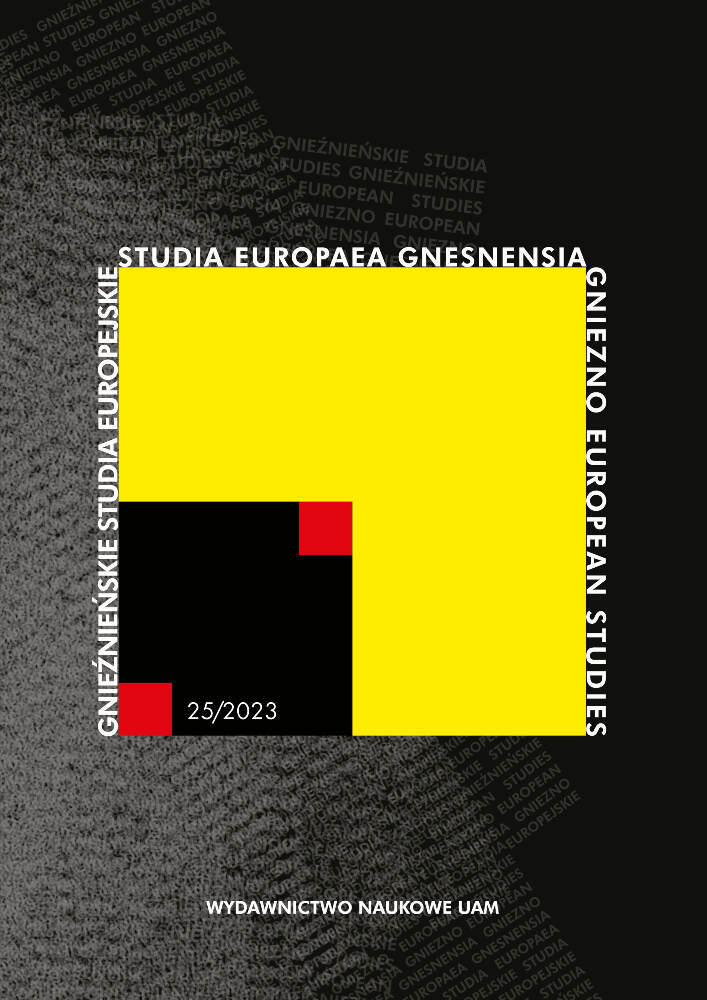Abstract
Henryk Skolimowski is a relatively little-known Polish philosopher whose works delve into metaphysics, philosophy of culture, philosophy of technology and ecology. Although he was born and educated in Poland, he left the country immediately after completing higher education to pursue scientific career in the West, in Great Britain, and subsequently the United States. That is why he managed to identify issues that are still relevant today, noticing the problems that individuals and the entire society may face due to consumerism and, above all, the technological mentality geared towards financial profit. Skolimowski noted that although science and technology make life easier in some respects and offer great benefits, they ultimately harm people and the environment.
Skolimowski claims that the crisis of the Western civilization, including contemporary Europe, is to a large extent a crisis of philosophical thought. Today, mechanistic notions still predominate, causing the world to be perceived as a machine. Machines can be disrespected. For this reason, Skolimowski proposes that the current mindset should be replaced with a new metaphysics, and puts forward his project, which he calls eco-cosmology. The Polish philosopher believes that nature and the entire universe should be treated as a sanctuary, with respect for everything that lives. This is a new, pro-ecological vision of the world that can save the world from the negative aftermath of technological development. Skolimowski’s philosophy draws on the style of philosophizing characteristic of the antique philosophical currents, such as Stoicism or Epicureanism. Philosophy should serve to develop the spirituality of individuals and be a tool for more profound critical thinking. Thus, Skolimowski’s philosophical thought is at the same time a return to the sources of European culture.
References
Bohm D. 1961, Przyczynowość i przypadek w fizyce współczesnej, przeł. S. Rouppert, Warszawa.
Chrzanowska-Gancarz M. 2018, Globalne cele zrównoważonego rozwoju a idea życia człowieka w koncepcji eko-filozofii Henryka Skolimowskiego, Zeszyty Naukowe Politechniki Śląskiej 131, s. 51-60.
Gawor L. 2012, Historiozoficzny aspekt ekofilozofii Henryka Skolimowskiego, Problemy Ekorozwoju 7, s. 95-103.
Hadot P. 2019, Ćwiczenia duchowe i filozofia starożytna, przeł. P. Domański, W. Klen-czon, Warszawa. Mia I. 2021, The Armed Conflict Survey 2021: Editor’s Introduction [online]. IISS [dostęp: 2023- 04-02]. Dostępny w Internecie: <https://www.iiss.org/online-analysis/online-analysis/2021/09/acs-2021-introduction/>.
Miller D. 2006, Opiekun spolegliwy w koncepcji Tadeusza Kotarbińskiego, Przegląd Filozoficzny – Nowa Seria 57, s. 139-147.
Murzyn M. 2018, Sens życia i sens wszechświata w ekofilozofii Henryka Skolimowskiego, Sensus Historiae 32, 2018, s. 193-201.
Papuziński A., The Idea of Philosophy vs. Eco-Philosophy, Problemy Ekorozwoju 4, 2009, s. 51-59.
Skolimowski H. 1985, Eco-Theology. Toward a Religion for Our Times, Madras.
Skolimowski H. 1993, Filozofia Żyjąca. Eko-filozofia jako Drzewo Życia, przeł. J. Wojciechowski, Warszawa.
Skolimowski H. 2007, Geniusz Światła a Świętość Życia, Warszawa.
Skolimowski H. 2010, Let There Be Light. The Mysterious Journey of Cosmic Creativity, New Delhi.
Skolimowski H. 1991, Medytacje o prawdziwych wartościach człowieka, który poszukuje sensu życia, Wrocław.
Skolimowski H. 1993, Nadzieja matką mądrych, Łódź.
Skolimowski H. 1995, Technika a przeznaczenie człowieka, Warszawa.
Skolimowski H. 1994, The Participatory Mind. A New Theory of Knowledge and of The Universe, London.
Skolimowski H. 1988, Współtwórczy umysł jako partner twórczej ewolucji, Zagadnienia Naukoznawstwa 95-96, s. 452-463.
StupakR.2023,Leczmyprzyczyny,anieskutki.[online]. IISS [dostęp: 2023-03-29].Dostępny w Internecie: https://www.tygodnikprzeglad.pl/leczmy-przyczyny-a-skutki/?fbclid=I- wAR0-2415ihrgJ6Aok4f4QnUipJ9dyemt47WzqQRKdA91MplB8oHq4wk>.
Stupak R. 2022, Zdrowie psychiczne dzieci czy medykalizacja dzieciństwa?, Nowy Obywatel. Pismo Na Rzecz Sprawiedliwości Społecznej 91, s. 32-35.
Waloszczyk K. 1986, Wola życia. Myśl Pierre’a Teilharda de Chardin, Warszawa.
License
Copyright (c) 2023 Marcin Murzyn

This work is licensed under a Creative Commons Attribution 4.0 International License.

